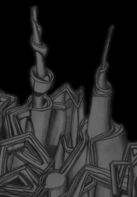Alliteration
A series of words beginning with the same letter or sound.
Anadiplosis
Repetition of the final word of one clause or sentence at or near the beginning of the next
Anaphora
The repeated use of the same word or group of words at the beginning of successive clauses, sentences, or lines.
Aphaeresis
The removal of a letter or several letters from the start of a word (the reverse of prothesis)
Apocope
Occurs when a phoneme or letter is left off the end of a word with no substantial change in meaning. Opposite of paragoge.
Asyndeton
(dissolutum)
The omission of conjunctions in a phrase or sentence.
Conduplicatio
Repetition of a key word from one sentence or clause at the beginning of successive phrases or sentences
Diazeugma
Zeugma is a device by which a number of terms share a common term of another part of speech. In the case of diazeugma a number of verbs are applied to a single object.
Epanalepsis
Repetition of the first word of a sentence or clause at its conclusion.
Epistrophe
(antistrophe)
The use of the same term at the conclusion of successive phrases or sentences.
Epizeuxis
Repetition of words with no others between.
Erotema
(interrogatio)
The rhetorical question a question that reinforces an argument, to which the answer is therefore implicit.
Exergasia
(expolito)
Repetition of the same idea or argument in a different form, often in successive phrases or sentences.
Hypophora
A form of question and answer in text or speech – a question is raised and then answered.
Hypozeugma
Zeugma is a device by which a number of terms share a common term of another part of speech. In this instance, hypozeugma a series of words or phrases are linked by a common verb, noun, or adjective that follows the series of clauses or terms.
Hypozeuxis
a statement in which all clauses contain a distinct and seperate verb (the reverse of ‘zeugma’)
hysterologia
a device in which a phrase intercedes between the preposition and the object of a sentence, giving additional details before the substantive statement is complete.
Mesodiplosis
Repetition of the same word or words in the middle of successive sentences.
Mesozeugma
Zeugma is a device by which a number of terms share a common term of another part of speech. In the case of mesozeugma a verb in the middle of a sentence applies to all the objects of the sentence.
Mimesis
(imitatio)
Adopting another’s style, words, or forms of speech and speech-making.
Paragmenon
A case in which a word appears twice in a phrase or brief sentence.
Paragoge
Occurs when a phoneme or letter is added to a word with no substantial change in meaning. Opposite of apocope.
Periergia
Over-worked language containing an excess of rhetorical figures, or flowery, descriptive words.
Polyptoton
In which a word is followed by a near repetition of the word, but in a slightly different form.
Polysyndeton
The use of a particular conjunction between each of a series of words or clauses of a sentence.
Prothesis
In which an extra letter or several letters are added at the start of a word.
Prozeugma
Zeugma is a device by which a number of terms share a common term of another part of speech. Prozeugma involves the description of multiple subjects with a single verb. e.g. James was skilled with a rifle, anne a scimitar, and paul a spatula.
Pysma
A series of questions.
Scesis onomaton
A number of consecutive phrases or statements of synonymous meaning, or any verbless sentence
Similiter desinens
(homioitelueton)
In which a series of words, or words at the end of clauses, have similar endings.
Solecism
A non-standard use of grammar.
Synonymia
Close to tautology, in that this device involves the use of a series of synonyms to represent something severally. Distinct from tautology if each synonym adds to the definition being provided
Tautologia
(tautology)
When an idea is reconceived in other words, usually gratuitously.
Traductio
Repeating the same word variously throughout a sentence or thought.
